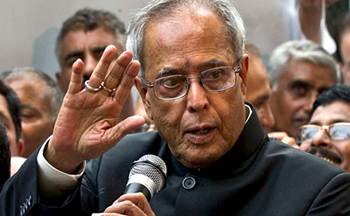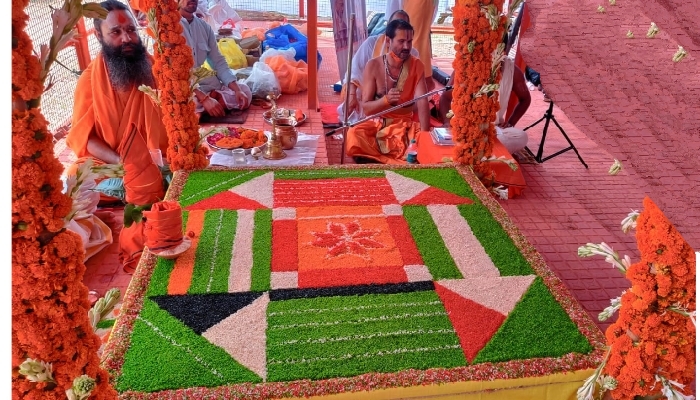New Delhi: Oct 20: President Pranab Mukherjee on Monday again expressed apprehension on whether tolerance and acceptance of dissent are on the wane.

“Assimilation through receiving is a characteristic of Indian society. Our collective strength must be harnessed to resist evil powers in society,” said Mukherjee, in remarks that were seen as alluding to the recent incidents involving attacks on writers and others, especially in Mumbai where the Shiv Sena activists stormed the BCCI headquarters in protest against resumption of India-Pakistan cricket.
The President reminded the audience of the teachings of 19th century mystic Ramakrishna Paramhansa “Jato Mat, Tato Path” (As there are a number of beliefs, there are a number of ways), a Rashtrapati Bhavan release stated.
Mukherjee said the Indian civilisation has survived for 5,000 years because of tolerance.
“It has always accepted dissent and differences. A large number of languages, 1,600 dialects and 7 religions coexist in India. We have a Constitution that accommodates all these differences,” he said
Greeting the people on the occasion of Durga Puja, the President hoped that the Mahamaya–the combination of all positive forces would eliminate the Asuras or divisive forces.
This is the second time the President has spoken out on the issue of tolerance. Days after the Dadri lynching, Mukherjee had appealed for tolerance and sent a strong message, saying core values of the civilisation could not be allowed to be wasted.
“We can’t allow the core values of our civilisation to be wasted. The core values are that over the years, civilisation celebrated diversity, promoted and advocated tolerance and enjoyed plurality. These core civilisation values keep us together over the centuries,” Mukherjee had said at a function at Rashtrapati Bhavan.
“Many ancient civilisations have fallen. Despite aggression after aggression, our civilisation has survived because of our core civilisational values. If we keep that in mind, nothing can prevent our democracy from moving ahead,” he added.
The remarks came after a 50-year-old Muslim man, Mohammed Akhlaq, was beaten to death by a mob on the night of September 28 in Bisara village in Dadri near the national capital over rumours that he killed and ate cow meat.






Comments
Add new comment